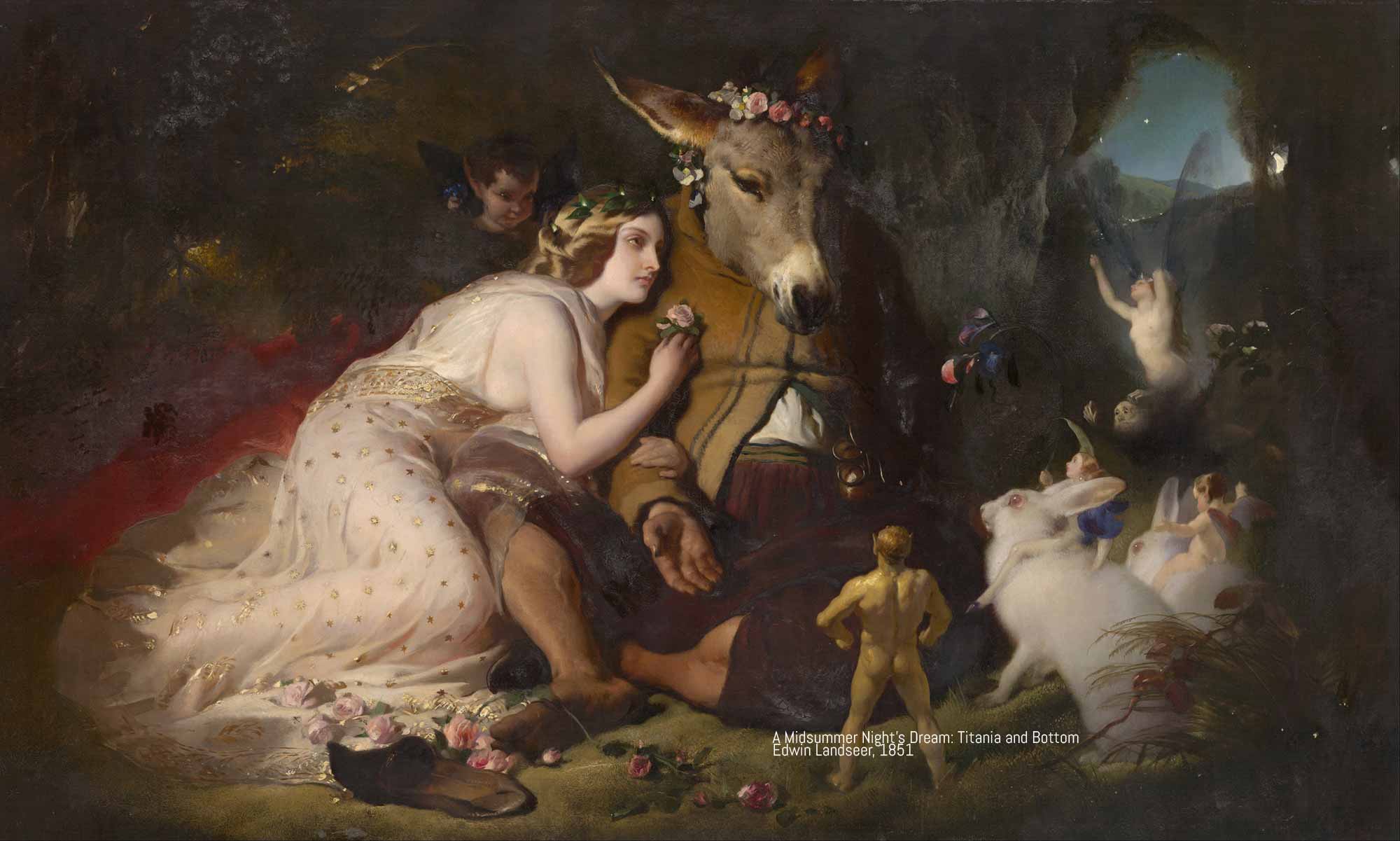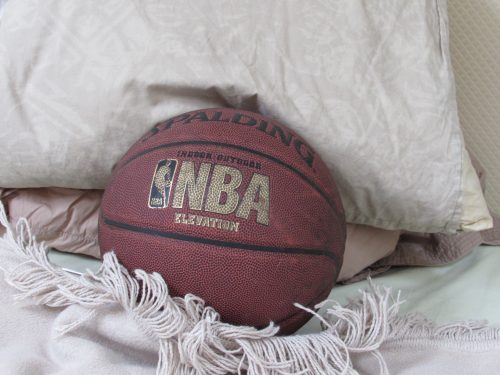 The day before the opening game of the Trailblazers’ 2021-2022 season, I was bothered by something I read online about Damien Lillard, Portland’s best player. The article ranked him lower among the league’s top players than I think he deserves; it dinged him for his defense, and emphasized the catastrophe that would befall the Blazers should he ever leave. The tone of the article reflected the very low expectations people seem to have for Portland’s performance this season. The Blazers hired a new head coach, Chauncey Billups, who has never held that role before, but whose previous assistant coaching focused on defense, and that’s where the Blazers most needed to improve (tied for 3rd best team in the league in offensive efficiency last year, but 19th in the league in defensive efficiency). Otherwise, Portland made no big roster moves during the off-season. They let Carmelo Anthony go, which I thought was too bad, he had a great run with the Blazers the past couple years. They re-signed their big mid-season acquisition from last year, shooting guard Norman Powell, which is certainly good. They added several new players to the bench, including two big guys who play great defense, Cody Zeller and Larry Nance, Jr.
The day before the opening game of the Trailblazers’ 2021-2022 season, I was bothered by something I read online about Damien Lillard, Portland’s best player. The article ranked him lower among the league’s top players than I think he deserves; it dinged him for his defense, and emphasized the catastrophe that would befall the Blazers should he ever leave. The tone of the article reflected the very low expectations people seem to have for Portland’s performance this season. The Blazers hired a new head coach, Chauncey Billups, who has never held that role before, but whose previous assistant coaching focused on defense, and that’s where the Blazers most needed to improve (tied for 3rd best team in the league in offensive efficiency last year, but 19th in the league in defensive efficiency). Otherwise, Portland made no big roster moves during the off-season. They let Carmelo Anthony go, which I thought was too bad, he had a great run with the Blazers the past couple years. They re-signed their big mid-season acquisition from last year, shooting guard Norman Powell, which is certainly good. They added several new players to the bench, including two big guys who play great defense, Cody Zeller and Larry Nance, Jr.
What’s not to like? The fear is that it doesn’t add up to enough in an NBA that gets faster and more skilled every year. Yes, Damien and C.J. McCollum will score points. But will the rest of the team be able to perform at championship-levels of competition? Nothing that happens in the preseason should cause too much anxiety, but losing all four games didn’t help in calming the worrisome vibes as the first game approached.
The Sacramento Kings were the visiting team. Led by veteran Harrison Barnes, they have lots of quick, young, talented players who clearly want to change their reputation as one of the league’s weakest teams. They certainly succeeded in gaining new respect from the Blazers, who lost in a very dispiriting fashion, 124-121. Portland played terribly for the first three quarters, made a comeback in the fourth, then fell short as Damien missed a last-second 3-point shot. For the game, Damien missed all nine of his 3-point attempts. Ouch. The team had no chemistry, and looked slow and out of tempo. The defense was awful.
Prospects of a truly disastrous season suddenly loomed. What if the Blazers had suddenly dropped into the lower ranks of the league? What would that mean for Damien and C.J., who have been the subject of trade talk throughout the off-season? Watching a franchise go through a sudden decline is a very, very painful experience for a fan…
That night after the game, I had this dream:
Will Damien Be Distracted?
Damien Lillard goes onto the basketball court with a gift someone gave him, a white rectangular box with a few things in it….He is happy, but I am confused….Won’t this distract him from the game?….
(10/21/21)
The dream made me think back to the opening ceremony before the game started, when Damien stepped to center court and spoke to the crowd. He welcomed everyone back to live action (yay!), and promised the team would try hard, even if the initial results might not be pretty to watch (hmm). The announcer thanked him as “Dame D.O.L.L.A.,” his musical pseudonym (double hmm). Now that I thought about it in light of the dream, it struck me at the time as a strange moment, breaking the fourth wall to reach out and lower our expectations, while gesturing towards his career beyond basketball. Damien is the not just the leader of the Blazers, but also the unquestioned athletic Alpha of the city, so it felt jarring somehow to hear him talk like this.
In the dream, I don’t know what’s in the box. It seems like a gift box for nice candles, or small jars of preserves, or little containers of grooming products. Whatever it is, it makes Damien happy. For nine seasons, a happy and confident Damien has led to a lot of Blazers success. What makes me worried about him now? His gifts. Literally and metaphorically, Damien Lillard is amazingly gifted. And that’s exactly what worries me. He has so many talents and future potentials, what if he isn’t totally committed to the Blazers anymore? What if he could do better as a musician than as a basketball player for Portland? It feels disrespectful to Damien even to think such a thought—so it comes out in a dream.
But one game does not a season make. No matter what’s going on with Damien, he’s not going to miss every 3-pointer he shoots. We could certainly hope for a better showing in the second game, even though it would be against a much better team, the Phoenix Suns. Led by rising star Devin Booker and all-time great Chris Paul, the Suns went all the way to the NBA Finals last year. If the Blazers were ever going to show a new level of defensive competence, now was the time to do so.
And lo and behold, an entirely different team showed up. The real team? Maybe. The Blazers overwhelmed the Suns, 134-105, and it could have been much worse. Booker did what he does, and scored 21. But the Blazers out-shot, out-rebounded, and out-hustled the Suns on both ends of the court. C.J. McCollum was hot and scored 28, while Damien had 19 points to go with 8 assists. Lots of bench guys got to play, and they looked great, too. Nassir Little and Anfernee Simons brought high energy and confident shooting, and Dennis Smith, Jr., had 5 assists in just 15 minutes of play. Ahh. What a wonderful exhale of a game.
That night after the game, I had this dream:
A Knife’s Edge
I am paying attention to a guy, his story, like in a book….A knife’s edge is threatening something of his….A round dark piece of fruit?….He is doing ok, though, overall….A couple, a man and woman, are sitting next to me on my right….But they just see the pages in the book, the images; they do not hear the story, and so they have no real idea what is going on….But I do….The guy in the story just has to keep moving forwards, that is all….
(10/23/21)
In the dream, the people to my right reminded me of the young couple sitting next to me at the game. They were in a happy party mood, friendly and chatty, shouting at the players by name, and getting high fives when they could. And yet… For most of the game they were fiddling with their phones, taking pictures, making videos, instagramming, etc., completely oblivious to the actual game in front of them.
To be clear, I have no problem with a fun date at the basketball game. Courtship at the court is an awesome thing and should be encouraged whenever possible. The dream doesn’t really seem to be about this couple or my feelings towards them. To be honest, the obnoxious man sitting to my left was much more annoying, so if this was a crowd-focused dream, I’d expect something from that direction. Instead, the dream revolves around the guy, his story, and the image of the knife and the round dark fruit. When I think of the dream in the light of the previous night’s game, the fruit immediately reminds me of an ad (for whiskey?) I saw on TV recently in which an artist spins an art-work basketball made of black shiny ceramic. That struck me as really cool and creative. And the guy in the dream with his story makes me think of each individual Blazers player, and what a big win like that means to them, how it opens up a new vista of confidence, reassurance, and possibility.
All of these basketball-related associations hover around the dream. Yet they shouldn’t distract from what Ernest Hartmann called the central image of a dream, in this case the piece of fruit and the knife. Sports aside, what other symbolic and metaphorical meanings can be connected to this specific, vivid image? Hmm. It could be seen as a vision of perilous sexuality, with the knife a phallic danger. It could be seen simply as part of preparing a piece of fruit to eat, and thus an image of impending nutrition. A knife and piece of fruit are common elements in classic paintings of “still life” scenes. Hmm.
The biological purpose of fruit is to bear seeds into a favorable growing environment, carrying the potential vitality of the plant into the future. Aha, there’s something that strikes a chord. The seed idea feels connected to the preseason-as-fertilizer metaphor from BDD #1, like an extension of nature-language to make sense of the basketball experience. In the dream, it felt like the fruit-like object needed to go forward with him, that’s the desired flowing growth of the story. But the knife is a threat; it could stop the flow (a player could be cut from the team?), and so it requires great caution in moving forwards (the Blazers’ weakest position?). The fruit is right next to the knife, right by its edge…
That seems to be the metaphor of the dream, or at least one of its metaphors: Playing on the knife’s edge. That’s what all the guys were doing last night. The story of the Blazers’ new season, the stories emerging for each player, the fate of their deepest seeds of potential, all entered last night’s game in a perilous and uncertain condition. Who is this team? How well can they perform? Do they have a future? By meeting this challenge with such a powerful and thoroughly entertaining performance, they put those questions to rest, at least for a night.
The couple in the seats next to me did not seem to share any of my concerns, but that’s fine, they clearly had a great time at the game, too. To be honest, they reminded me of Ronnie and Amber LaFontaine from “Modern Family.” I tried to be a really, really good neighbor.
 This has been a rough season for fans of the Portland Trailblazers basketball team. The players are learning a new system from their rookie head coach, Chauncey Billups, in his first season in that role. Their star player, Damien Lillard, plays poorly (by his standards) at the outset, then is forced to undergo season-ending surgery. Three other players in the original rotation—Cody Zeller, Larry Nance Jr., and Nassir Little—go down with injuries. The General Manager of the team, Neil Olshey, is summarily fired after years of internal conflict, leaving the operations in the hands of neophyte executives and detached ownership. Just before the trade deadline they deal away three of their best remaining players—Norman Powell, Robert Covington, Jr., and the beloved C.J. McCollum. In return the Blazers receive some promising guys (Josh Hart, Justice Winslow, Keon Johnson), plus draft picks and salary cap flexibility (an aspect of the game I don’t understand and don’t want to understand). In the midst of it all, the team wins a few surprising games, but loses many more, often by huge margins. Now, with a season-ending injury to Jusuf Nurkic, the lone remainder from the starting line-up at the beginning of the season, the Blazers have been reduced to a fragment of what they hoped to become this year.
This has been a rough season for fans of the Portland Trailblazers basketball team. The players are learning a new system from their rookie head coach, Chauncey Billups, in his first season in that role. Their star player, Damien Lillard, plays poorly (by his standards) at the outset, then is forced to undergo season-ending surgery. Three other players in the original rotation—Cody Zeller, Larry Nance Jr., and Nassir Little—go down with injuries. The General Manager of the team, Neil Olshey, is summarily fired after years of internal conflict, leaving the operations in the hands of neophyte executives and detached ownership. Just before the trade deadline they deal away three of their best remaining players—Norman Powell, Robert Covington, Jr., and the beloved C.J. McCollum. In return the Blazers receive some promising guys (Josh Hart, Justice Winslow, Keon Johnson), plus draft picks and salary cap flexibility (an aspect of the game I don’t understand and don’t want to understand). In the midst of it all, the team wins a few surprising games, but loses many more, often by huge margins. Now, with a season-ending injury to Jusuf Nurkic, the lone remainder from the starting line-up at the beginning of the season, the Blazers have been reduced to a fragment of what they hoped to become this year.
 Of SUVs, prosperous males, and watching witches.
Of SUVs, prosperous males, and watching witches. The Blazers beat the Memphis Grizzlies, 116-96, last Wednesday night, to even their season’s record at 2 wins and 2 losses. They played excellent defense and held Ja Morant, the Grizzlies’ young star guard, to 17 points, half of what he had been averaging the first few games of the season. The Blazers had a strong second half, with more amazing dance-and-shoot moves from C.J. McCollum, who plays with astonishing grace and fluidity. He excels at step-back jumpers, mid-lane floaters, sneaky inside drives, and quick-release 3-pointers, always hunting for the spots where he knows he can elevate and hit his shot. Damien Lillard played well enough on offense to give C.J. room to maneuver, which seems to be part of the season’s overall design. And the bench continues to gain in confidence and cohesion. There was a great play towards the end of the game when Dennis Smith, Jr. took a C.J. Elleby outlet and made a touch pass to Greg Brown for an alley-oop dunk. Everybody loves to see that.
The Blazers beat the Memphis Grizzlies, 116-96, last Wednesday night, to even their season’s record at 2 wins and 2 losses. They played excellent defense and held Ja Morant, the Grizzlies’ young star guard, to 17 points, half of what he had been averaging the first few games of the season. The Blazers had a strong second half, with more amazing dance-and-shoot moves from C.J. McCollum, who plays with astonishing grace and fluidity. He excels at step-back jumpers, mid-lane floaters, sneaky inside drives, and quick-release 3-pointers, always hunting for the spots where he knows he can elevate and hit his shot. Damien Lillard played well enough on offense to give C.J. room to maneuver, which seems to be part of the season’s overall design. And the bench continues to gain in confidence and cohesion. There was a great play towards the end of the game when Dennis Smith, Jr. took a C.J. Elleby outlet and made a touch pass to Greg Brown for an alley-oop dunk. Everybody loves to see that. The day before the opening game of the Trailblazers’ 2021-2022 season, I was bothered by something I read online about Damien Lillard, Portland’s best player. The article ranked him lower among the league’s top players than I think he deserves; it dinged him for his defense, and emphasized the catastrophe that would befall the Blazers should he ever leave. The tone of the article reflected the very low expectations people seem to have for Portland’s performance this season. The Blazers hired a new head coach, Chauncey Billups, who has never held that role before, but whose previous assistant coaching focused on defense, and that’s where the Blazers most needed to improve (tied for 3rd best team in the league in offensive efficiency last year, but 19th in the league in defensive efficiency). Otherwise, Portland made no big roster moves during the off-season. They let Carmelo Anthony go, which I thought was too bad, he had a great run with the Blazers the past couple years. They re-signed their big mid-season acquisition from last year, shooting guard Norman Powell, which is certainly good. They added several new players to the bench, including two big guys who play great defense, Cody Zeller and Larry Nance, Jr.
The day before the opening game of the Trailblazers’ 2021-2022 season, I was bothered by something I read online about Damien Lillard, Portland’s best player. The article ranked him lower among the league’s top players than I think he deserves; it dinged him for his defense, and emphasized the catastrophe that would befall the Blazers should he ever leave. The tone of the article reflected the very low expectations people seem to have for Portland’s performance this season. The Blazers hired a new head coach, Chauncey Billups, who has never held that role before, but whose previous assistant coaching focused on defense, and that’s where the Blazers most needed to improve (tied for 3rd best team in the league in offensive efficiency last year, but 19th in the league in defensive efficiency). Otherwise, Portland made no big roster moves during the off-season. They let Carmelo Anthony go, which I thought was too bad, he had a great run with the Blazers the past couple years. They re-signed their big mid-season acquisition from last year, shooting guard Norman Powell, which is certainly good. They added several new players to the bench, including two big guys who play great defense, Cody Zeller and Larry Nance, Jr. Earlier this week I attended the preseason basketball game between the Portland Trailblazers and the Sacramento Kings. Although the Blazers played with lots of energy, the Kings beat them handily, 107-93. That night (it was a Monday), I had the following dream:
Earlier this week I attended the preseason basketball game between the Portland Trailblazers and the Sacramento Kings. Although the Blazers played with lots of energy, the Kings beat them handily, 107-93. That night (it was a Monday), I had the following dream: Pro basketball players and coaches suffer chronic sleep deprivation. Can they find help in their dreams?
Pro basketball players and coaches suffer chronic sleep deprivation. Can they find help in their dreams?